Should I be using retinol?
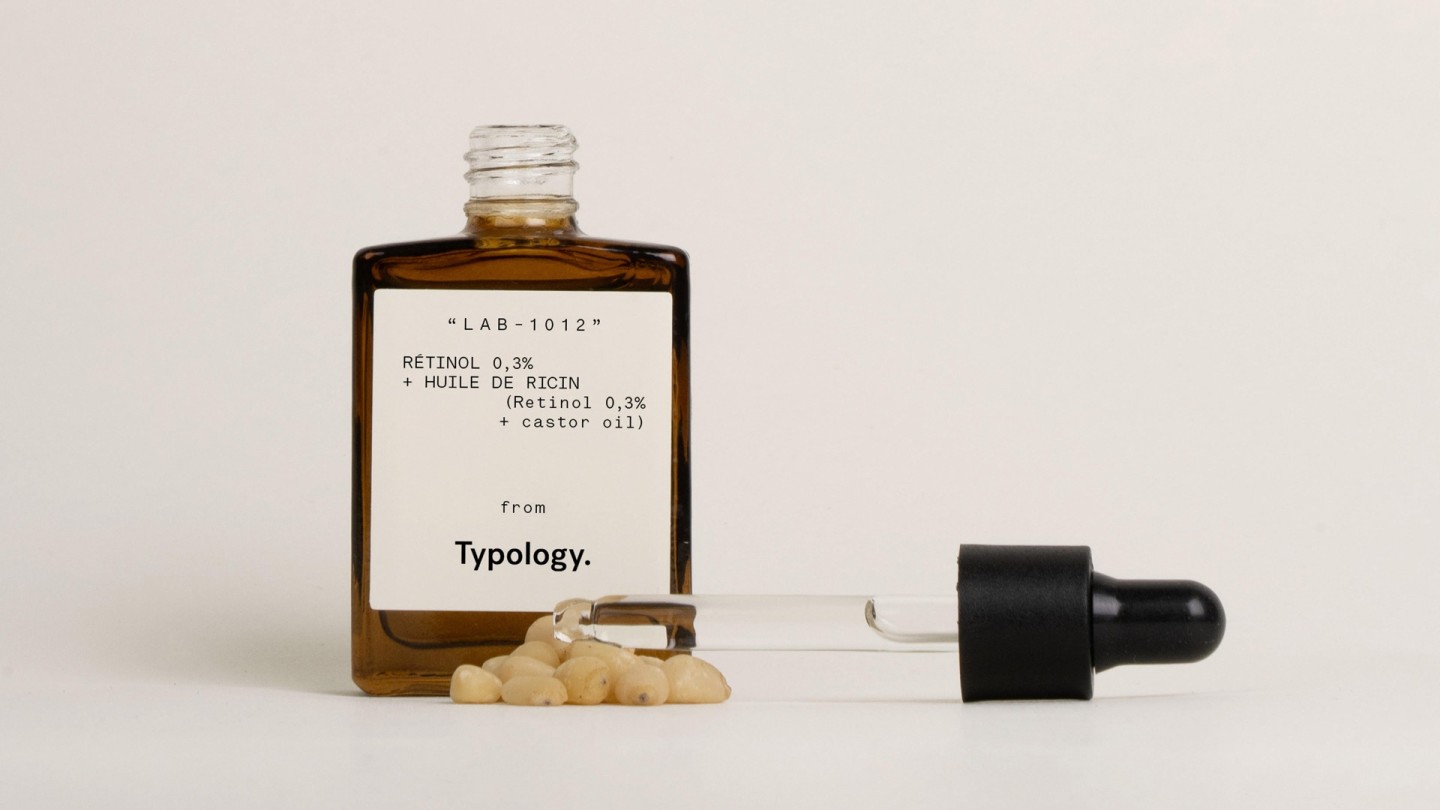
Roula Khalaf, Editor of the FT, selects her favourite stories in this weekly newsletter.
As a facialist, I am always asked: “What’s the best anti-ageing skincare product?” I always answer: “Retinol.”
Retinol is not a new skincare fad. The powerful, fat-soluble form of vitamin A was discovered in 1909, isolated in 1931, lab-made in 1947, and first used in over-the-counter creams in the ’70s. It has a stellar reputation as a wrinkle-fighter: it promotes collagen and elastin growth beneath the skin, increases cellular turnover to diminish lines and wrinkles, and combats pigmentation and acne scarring.
Your three-step routine to help build skin tolerance
• For the first 10 applications, apply retinol every third night
• The next 10 applications, apply every second night
• Finally, build up to every night. If your skin is still sensitive, then keep it at every second night
Application tips
• Don’t neglect neck or décolletage, and even the back of the hands which are often overlooked
• Try my Retinol sandwich technique. Your serum and moisturiser are the two slices of bread, and the retinol is the filling. Wait a few minutes between applying each layer
• On your retinol off-nights, give your skin some love and hydration. Your skin will be more moisture-needy than usual
• Constant friction of cotton rubbing can heighten irritation. Swap your pillowcase with a Slip pure silk pillowcase for skin-soothing relief
• Retinol-induced epidermal renewal will make the skin more vulnerable to the sun. It’s vital to use sunscreen every single day, reapplying every three hours
The problem is that it’s often underutilised or misused. The confusion comes because it is a retinoid, and retinoids fall into four main categories: retinol, retinoic acid, retinyl esters and retinaldehyde. There’s a misconception that they’re the same, and interchangeable. They’re not.
Tretinoin (aka retinoic acid) is a prescription-strength retinoid, 20 times more potent than over-the-counter retinol and prescribed for acne or severe, indented acne scarring, pigmentation or melasma. The high prescriptive concentration causes cells to turn over faster and deliver quicker results, meaning it can also cause inflammation and redness.
Retinol, on the other hand, slowly converts to retinoic acid, and therefore takes longer to get the skin from A to B. Because of this, retinol users can experience less irritation. What you need to remember with retinol is: start low, go slow and be patient. Start off with a pea-sized amount of a low-percentage formula, 0.01 per cent to 0.03 per cent, and slowly move up the ladder (retinol tends to go up to one per cent at the highest level) until you reach the Goldilocks zone: not too low, not too high.
Retinol can initially cause a skin process called retinisation: initial redness, dryness and flaking that can last between one and four weeks. It’s a sign of your skin undergoing a shock of accelerated cellular growth. It’s not necessarily an adverse reaction, more a tolerance adjustment. Over the years, I have seen people panic and discontinue retinol use at this vital stage: I compare it to a gym goer dropping their regime at the first hint of muscle soreness.
Retinol is one of those skincare ingredients that really forces one to “trust the process” but, given the right dose, patience and usage, it can deliver a fresh-faced complexion. Your skin will thank you now, and for decades to come.
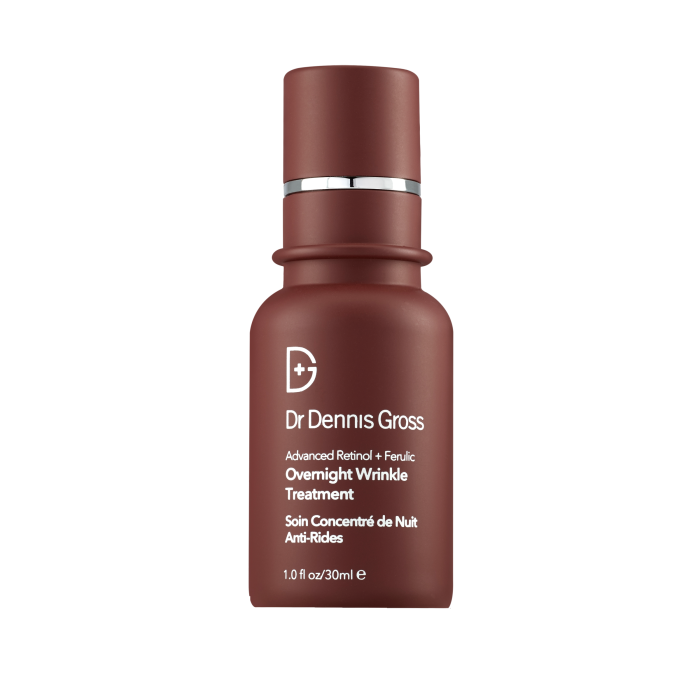
Dr Dennis Gross Overnight Wrinkle Treatment, $85 for 30ml. This is a one-two punch of a serum, with powerhouse ferulic acid improving skin elasticity while evening out pigmentation.
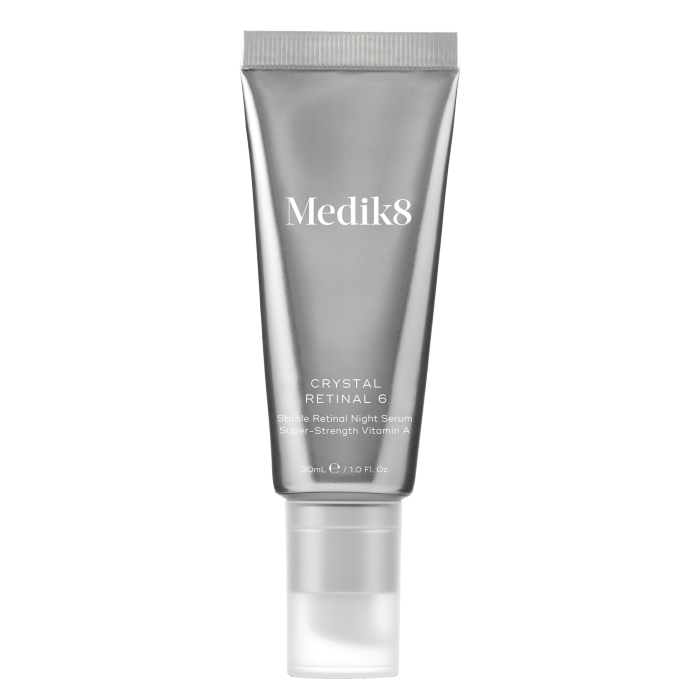
Medik8 Crystal Retinal, £45 for 30ml. To let your skin adapt, start with Medik8, available in a series of strengths. It contains retinaldehyde, a next-gen form of fast-acting vitamin A.
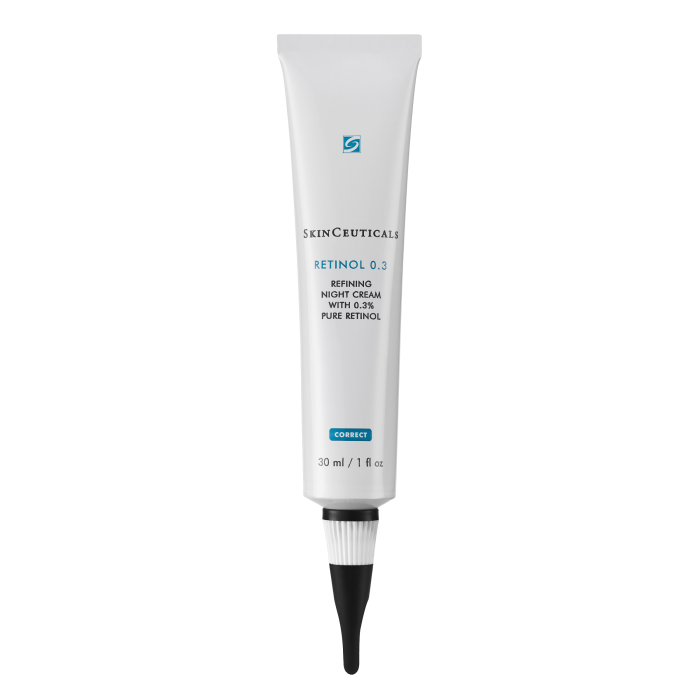
SkinCeuticals Retinol 0.3, £72 for 30ml. Beginner-friendly, and delivers a steady, even release of retinol
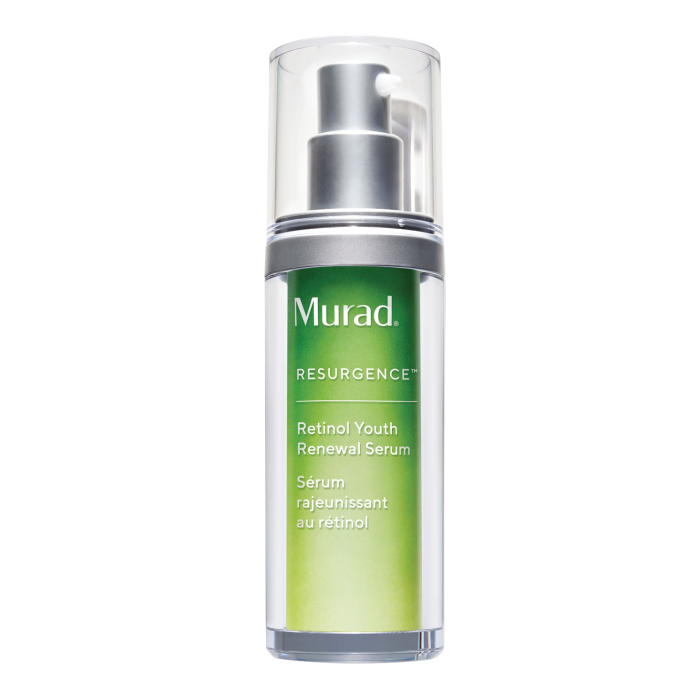
Murad Retinol Youth Renewal Serum, £80 for 30ml. This easy-does-it formula with a dose of hyaluronic acid is mild enough for nightly use
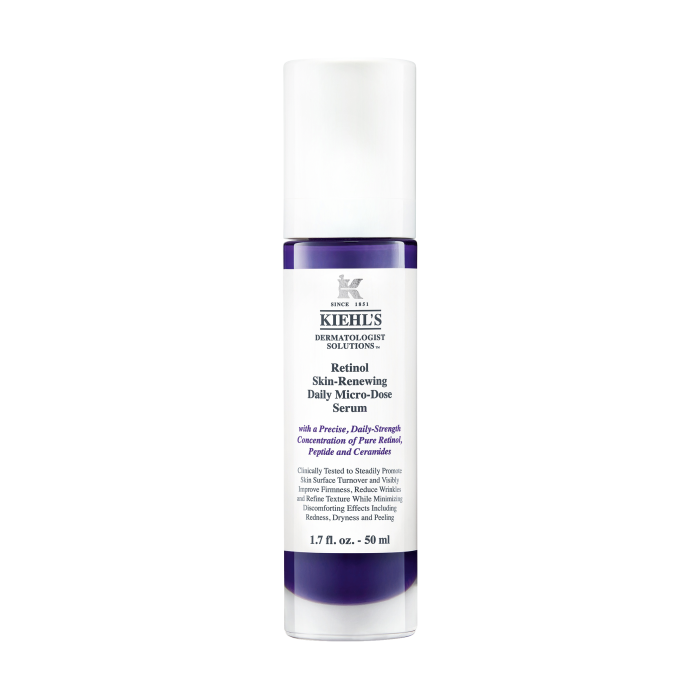
Kiehl’s Retinol Skin Renewing Daily Micro-Dose Serum, £45 for 30ml. For a measured dose of peptide and ceramides to strengthen the skin-barrier function, opt for this patent-pending serum
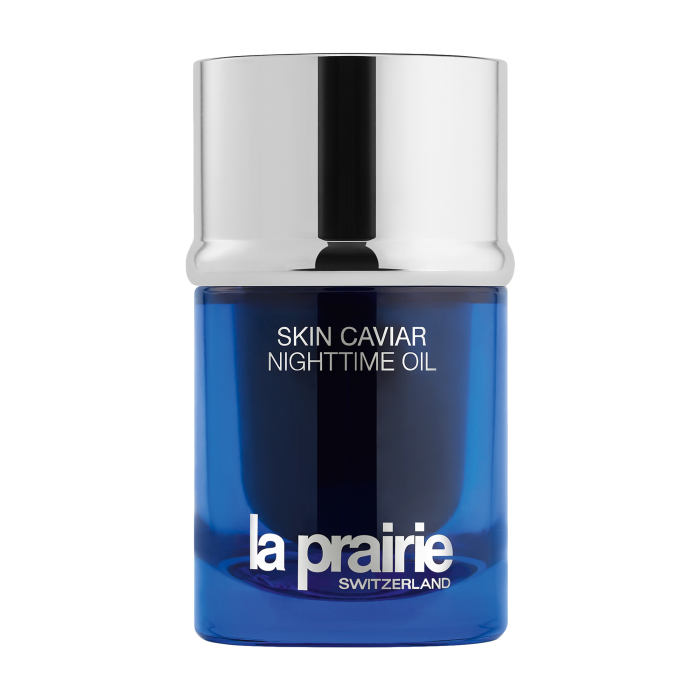
La Prairie Skin Caviar Nighttime Oil, £440 for 20ml. The Swiss brand has championed the use of retinol-rich caviar since the late ’80s, making a massage feel even more special
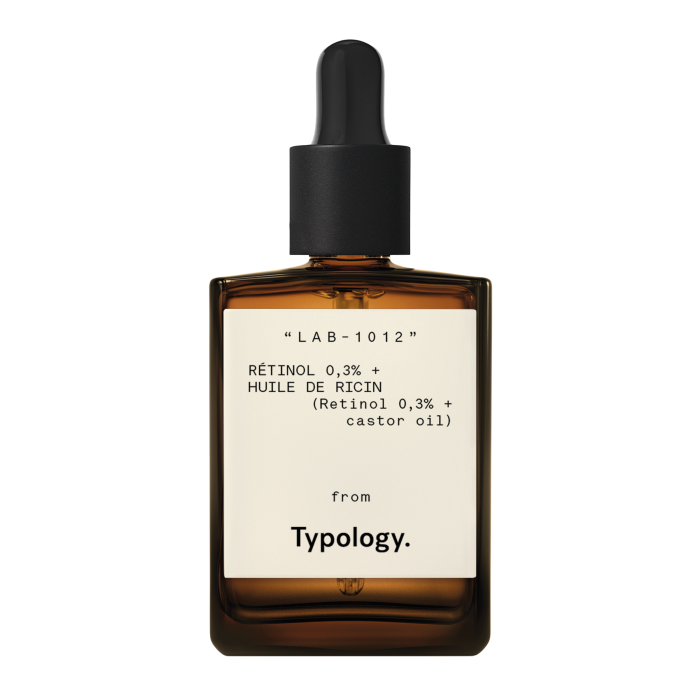
Typology Fine Lines & Wrinkles Serum, £33 for 30ml. Good for those with hyper‑sensitive skin, this serum doesn’t compromise the skin’s delicate barrier because of its gentle glide
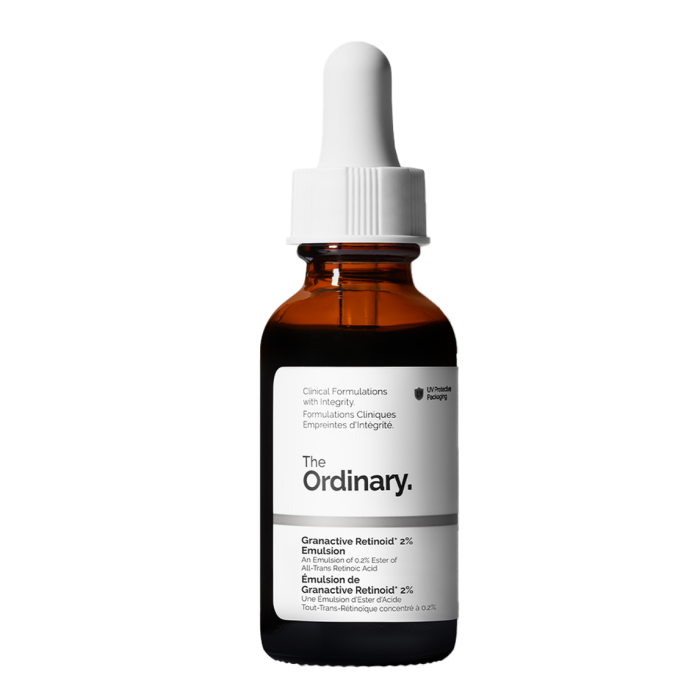
The Ordinary Granactive Retinoid 2% Emulsion, £9. This brand democratises high-level skincare ingredients by removing the eye-watering price tag. This standout, low irritation, lightweight milky emollient offers an array of retinols equivalent to 0.2 per cent

Comments